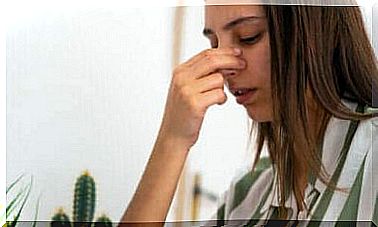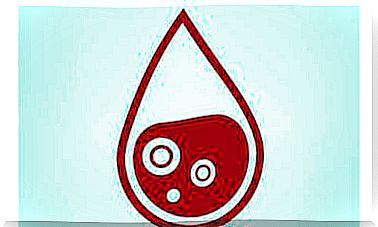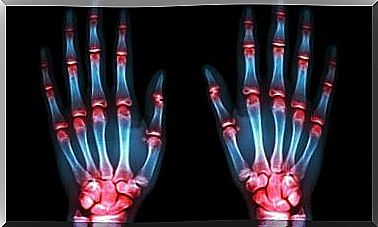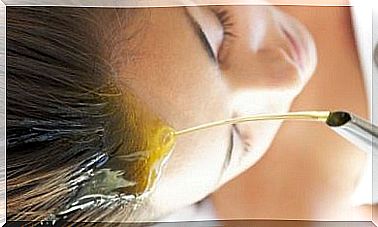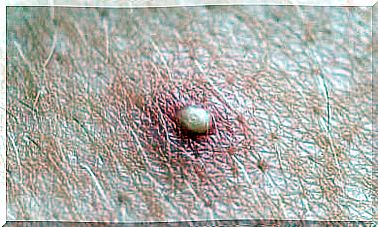Are Sulphites In Food Dangerous?
Sulphites are approved for many foods and they appear to be harmless at first. However, these substances can cause undesirable reactions in some sensitive people.

Sulphites are chemical compounds and a form of sulfur. Sulphites have traditionally been used as preservatives in foods, as early as ancient Greece and Rome.
These are added to prevent fats and oils from oxidizing, preserve the original color of the food and prevent unwanted mold, bacteria or yeast from growing.
Sulphites in food can be identified on food labels by a specific name. They must indicate what function they have in the food and be labeled with their name or E number. For sulfites, the E numbers range from E220 to E228.
The indication on the label is mandatory because they belong to the group of substances known to cause allergies. These are listed by the Codex Alimentarius .

Where do we find sulfites in food?
Sulphites can be added to the following foods:
- Dried fruits, pastries and cakes
- Fruit juices, beer, wines, cider and cider
- Gelatine and fruit jams
- Salad dressings
- Sausages and charcuterie
- Meat, fish and shellfish
- Fresh, frozen and frozen shellfish
In addition to food, sulfites are also found in some pharmaceutical and cosmetic products.
The Food and Drug Administration of the United States, however, in 1986 banned the use of sulfites in fresh fruits and vegetables (excluding potatoes). In addition, these substances are not allowed in fresh meat, fish and seafood. Because this additive destroys the thiamine (vitamin B1) it contains.
Are sulfites safe in food?
As mentioned earlier, the use of sulfites is allowed in the food industry. They even occur naturally in some fermented foods, such as wine or beer. But the amount is minimal.
All approved food additives are in principle safe and harmless. The quantities used are regulated and the maximum permitted quantities are well below the values that could cause health problems.
The safe daily dose for sulphites was established in 1974. This is 0.7 mg per kilogram of body weight per day.
But sulfite use can be problematic for some people. Because undesirable allergic reactions could well occur. For this reason, bodies such as the European Food Safety Authority (EFSA) and Food Standards Australia New Zealand (FSANZ) have commissioned expert panels to review the use of sulfites in food.
The most important facts of the last investigations
After analyzing these latest studies, both EFSA and FSANZ have drawn similar conclusions about the use of sulfites in food.
For now, they are still advising that the consumption of sulfites should not worry consumers. However, both authorities found that many people slightly exceed the recommended maximum amount of 0.7 mg of sulfite per kilogram of body weight. Especially adults and children who eat foods that contain sulfite in particular.
Therefore , they stress that “new studies are needed to evaluate the effects of sulfites on the body as some people show adverse reactions” .
Until there are new results, precise labeling of the sulphite content in food is therefore particularly important. This allows people who are sensitive to sulfites to control their consumption. Because by labeling you can avoid excessive consumption and the associated complications.

Who is most sensitive to sulfites in food?
Adverse reactions to the consumption of sulfites have been known for several decades. However, all consumers react differently. W hile show a no response, others are much more sensitive.
Usually, sensitive people experience various allergic symptoms, such as
- dermatitis
- skin rash
- itching
- Abdominal pain with diarrhea
- Coughing, runny nose, or sneezing
In addition , depending on the dose, sulfur dioxide can be dangerous. It is irritating to the airways and can cause problems in some asthmatics. Between 4 and 8% of them experience undesirable reactions with sulfites. While the exact background is not yet clear, it appears that some connections promote bronchial narrowing. As a result, problems such as coughing, shortness of breath, rattling and hoarseness occur.
In summary, the excessive consumption of sulfites can be a problem for asthmatics and particularly sensitive people. Until a further prescription on the maximum recommended doses is available, these people should pay particular attention to their diet.
